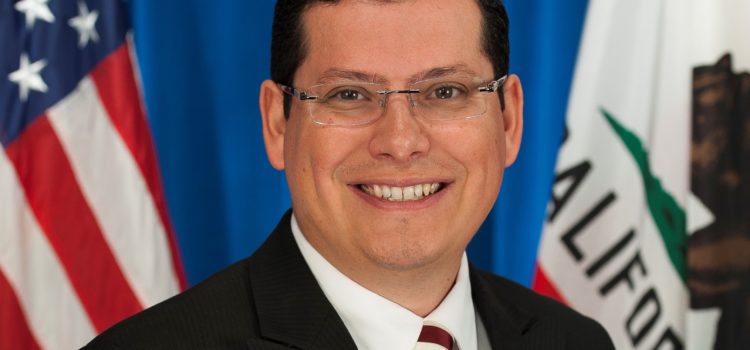
A proposed bill that addresses air monitoring systems for petroleum refineries has environmental justice advocates concerned certain refineries could be exempt from air monitoring and reporting actions that have a direct impact on rural communities.
Assembly Bill 1299, which was introduced in February and is being led by Assemblyman Rudy Salas, could exclude certain small refineries from these rules.
“We feel that this could have a negative impact on the public health of South Kern and the integrity of pollution control technology and general air quality,” Central California Environmental Justice Network project coordinator Gustavo Aguirre Jr. said in an email to Kern Sol News.
However, Salas says the bill, which is backed by Kern Oil & Refining, according to Cal Matters, addresses “unintended consequences” from previous legislation passed in 2017.
“This bill unintentionally put an unequal burden on small refineries like Kern Oil in Bakersfield by requiring them to institute the same new emissions testing as large-scale, multinational refineries in urban centers,” Salas said. “AB 1299 will allow small refineries like Kern Oil to continue investing in cleaner and safer technology upgrades which they have been proactively pursuing.”
Salas continued: “By utilizing highly regulated local production that is consumed in California, there is an overall climate benefit when compared to having shipments of crude sent from around the world to meet current demand.”
If refineries are exempt from Valley Air District regulations with the passage of the bill, they will not have to follow the most stringent regulations on emission reduction and toxic exposure, and they will not be obligated to use the Best Control Technology for pollution, according to Aguirre.
“For the already overburdened and disadvantaged community of Lamont and Hilltop, it would mean even more exposure to toxic, cancer-causing pollution,” he said. “And for the youth of Mt. View Middle School, on top of the traffic from Weedpatch, the application of the pesticide in (agriculture) fields, that harvesting of newly planted nut trees, it just means fewer years off the top, unfortunately.”
The bill goes over regulations that are already in place, including: existing law generally designates air pollution control and air quality management districts with the primary responsibility for the control of air pollution from all sources other than vehicular sources; existing law requires a refinery-related community air monitoring system, as defined, to be installed on or before January 1, 2020, as specified, and requires an air district to design, develop, install, operate, and maintain the refinery-related community air monitoring system or to contract with a 3rd party to provide those services; existing law requires an owner or operator of a petroleum refinery to develop, install, operate, and maintain a fence-line monitoring system, as defined, on or before Jan. 1, 2020, as specified.
The bill state that within one mile of refineries there needs to be less than 3,000 or more permanent people in order for it to be considered “environmentally sensitive.”
“(This) is the backbone of oppression to rural communities,” Aguirre said.

Aguirre pointed to Kern Oil Refinery in Lamont as an example. It sits within a one-mile radius from the community of Hilltop and Mt. View Middle School.
However, Salas says refineries like Kern Oil play a role in the state’s energy economy.
“Kern Oil is one of the last small, family-owned and independent refineries in California and already follows stringent emissions testing on the local and state level,” Salas said. “The facility also plays a key role in the state’s energy economy by producing 100 percent of gasoline and 87 percent of diesel demand in the Southern San Joaquin Valley.”
Salas took over the bill, which is co-authored by Senator Melissa Hurtado and Senator Shannon Grove, Tuesday. The bill has now passed through each house.
Advocates are calling on Salas to come to Lamont for a Town Hall to discuss what this bill would mean for the rural community. Advocates contacted Salas’ office, and his office said they did not plan on holding a town hall but would pass along the concerns to Salas’ Sacramento office, Aguirre said.
“This a lot bigger than just air monitoring,” Aguirre said. “It really showcases how elected officials are not in the community getting feedback from the most affected by pollution but rather those most affected by regulation.”